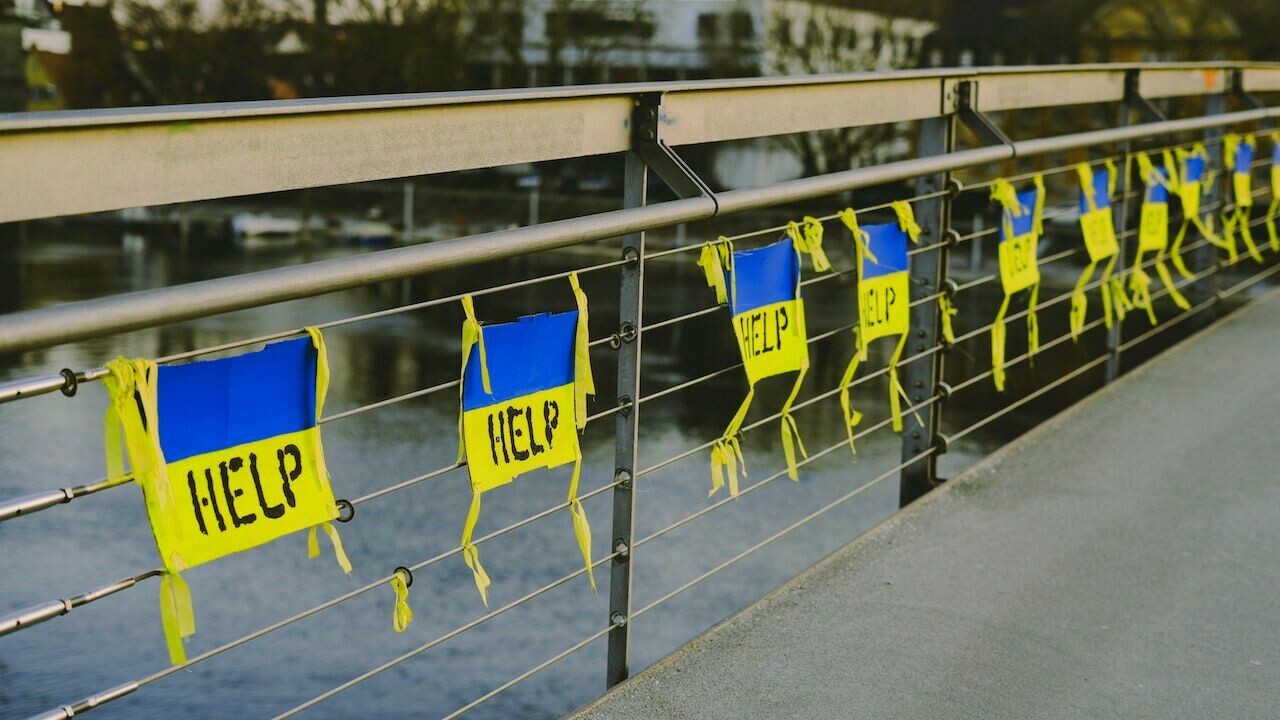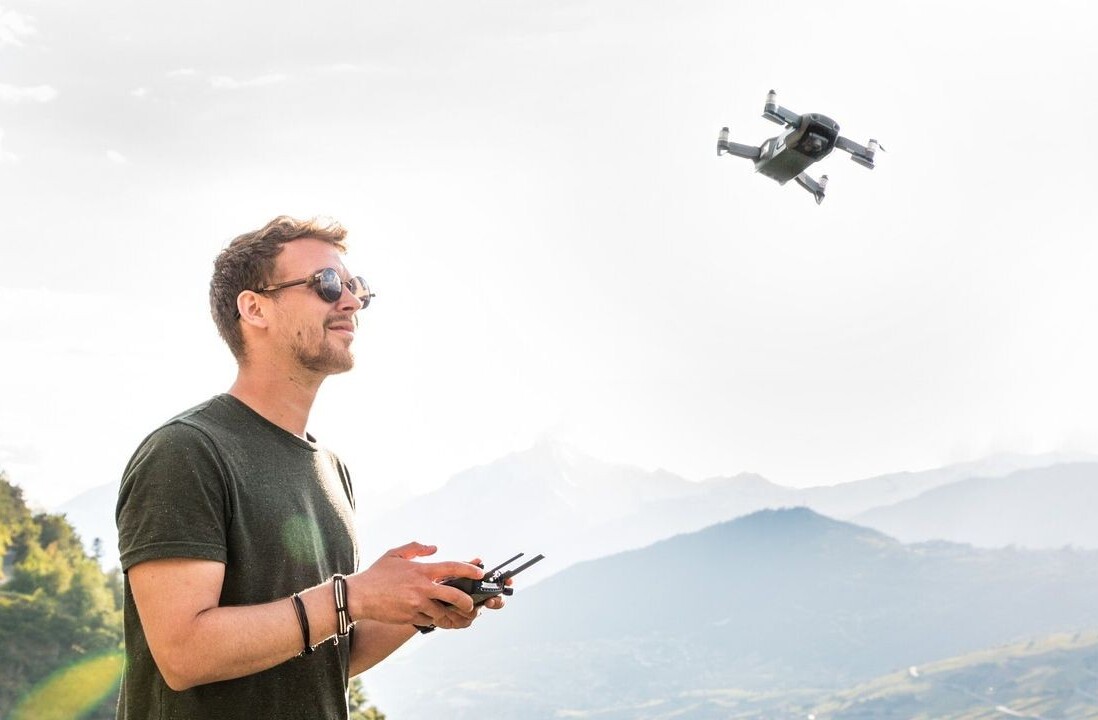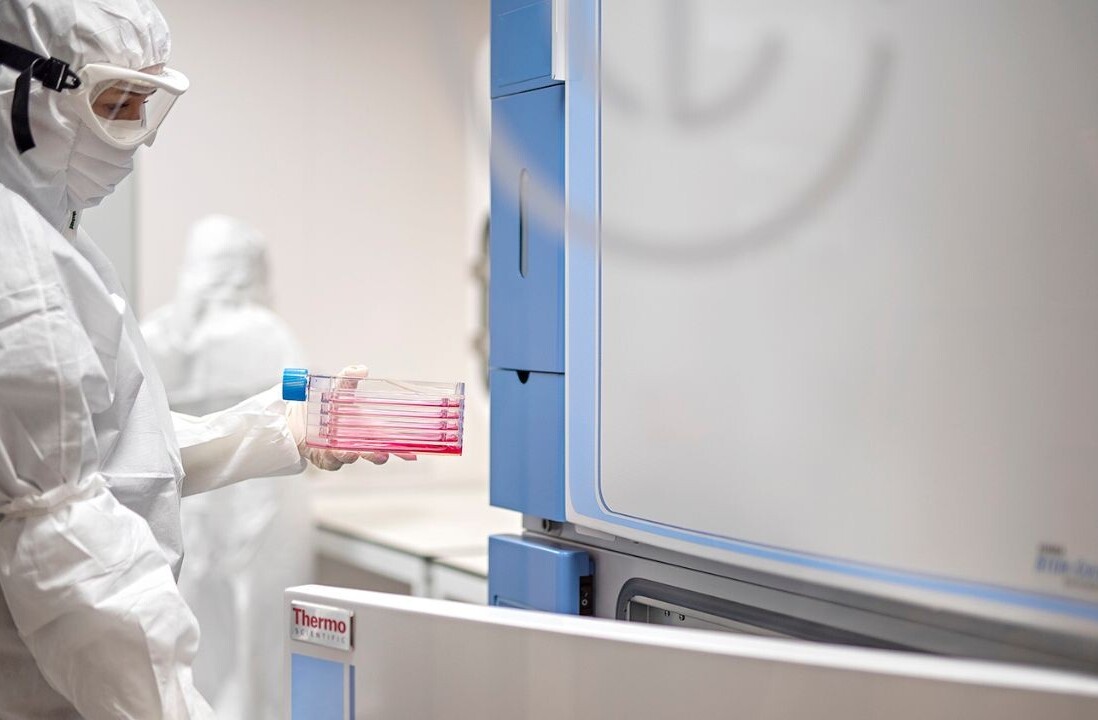
Meet the People for People team in person at this year’s TNW Conference to find out more about how you or your organization can help support victims of the war in Ukraine.
“It’s very human to start thinking in terms of us and them. But in my personal experience, war only has victims,” said Ali Niknam, CEO of neobank bunq, in an interview with TNW.
Born to Iranian parents, Niknam experienced this first-hand during the Iran-Iraq War. After seeing the war in Ukraine break out in February, he wrote a Linkedin post offering to provide shelter and assistance to anyone escaping the conflict.
What Niknam hadn’t expected was the influx of support his message would generate. In the long thread of comments and DMs he received over the following days, people not only voiced support, they wanted to know how they could help.
As the founder of one of Amsterdam’s thriving scaleups, Ali realized he already had a strong network of entrepreneurial individuals who knew how to move fast.
He was soon joined by the founders of two of Amsterdam’s other major scaleups: Joris Beckers co-founder of Picnic and Robert Vis CEO of MessageBird. Together, they created the People for People Foundation.
Within the first few weeks, bunq jumped through the logistical and technical hurdles needed to help refugees open free bank accounts on the company’s platform (so far, they’ve opened 6,300 and counting). One of Niknam’s friends managed to get a truck across the border filled with baby food and diapers supplied by Picnic. MessageBird helped get SIM cards to people so they could contact their families.
“It all went very quickly, no politics, no bullshit, we just got it done,” Ali said.
And it wasn’t just tech companies. Any business that contacted the Foundation wanting to help was connected with individuals or a non-profit in need. A Polish furniture company that wanted to help was connected with people who were given a new place to live, but had no possessions. Tony Chocoloney wanted to donate pallets of chocolate, so People for People found transport to deliver and distribute them to children in refugee camps in Ukraine, orphanages in Poland, and a school in Eindhoven receiving incoming students.
Individual volunteers came forward to help as translators, drive delivery trucks, help with logistics, and give local language lessons to children.

An organization that helps everyone
One of the first principles that appears front and center on People for People’s website is that anyone impacted by the Russian-Ukrainian war, regardless of their background, will receive support.
It’s not just Ukrainians, it’s also Russians. There’s no us vs. them. The world today is too complex to fit into 140 characters, but because our media has become increasingly fast and overloaded with soundbites, we’ve created this environment where we’ve wrongfully learned to think in black and white. For example, I’ve had a number of Russian friends who are now scared of the secret police because they demonstrated against the war and they’re worried about their families. We’ve had Russians knock on our door as well, and we will help them just as well as we can.
He explained that a friend of his is now harboring a Russian journalist who opposed the war. Although he’s now safe in the Netherlands, he can’t access the visa scheme the EU introduced for Ukrainians, and therefore can’t get a job or access basic services offered to people with refugee status. Discussing the Ukrainian visa, Niknam lamented:
It would have been a great opportunity to show how united we are and to tell everyone, “Hey, if you’re for peace and you’re against war, regardless of your nationality, you’re welcome.” That would have been such a different message for our political leaders to send. The current approach is a very old fashioned way of thinking.
What People for People needs now
While the first weeks were a flurry of wide ranging projects, Niknam and the team soon found they needed to focus and structure their efforts. With experience in helping businesses launch moonshots, Jesse van der Meulen, founder of corporate innovation studio Aimforthemoon, was appointed as co-director of the Foundation.
The first month we were doing many things. Then we wondered, how can we position ourselves to add the most value?
People for People quickly became a platform to match up those in need of assistance with those offering assistance.
We saw we can do that best by being a platform and combining on the supply side more companies like bunq, MessageBird, and Picnic. Many companies want to do something but they don’t always know how. If you want to do something, we can have a call and explore different options. Can you involve your employees in some way, your customers, or can you donate goods or services?
We also started working with foundations that we trust and built relationships with them. Instead of doing it all ourselves, we now have eight partner foundations, solving for transport, housing, etc. We also have a supply chain that can send goods from here to war zones in Ukraine within one week through our collaboration with Lifeline Ukraine.
One thing they continuously need are supplies such as food, medicine, diapers, generators, children’s toys, etc. But, as van der Meulen explained, no matter what companies are willing to offer, People for People can search through their network to find a match for it.
For those who want to help monetarily, People for People will soon launch a crowd donation page where you can donate directly to projects their partners are undertaking. Follow them on Twitter or Linkedin to find out when the page goes live.
“I truly believe in collective entrepreneurship to solve the biggest challenges. We constantly need to reinvent ourselves because the focus changes. What I like about scaleups is that you still have the entrepreneurial spirit. We have a direct line with Niknam, Vis, and Beckers who can make decisions immediately. So our decision-making process is just as fast as a startup’s, but we also have access to a lot of resources, goods, money, and people. So now we’re seeing how we can add more bunqs, Picnics, and MessageBirds to our Foundation,” van der Meulen said.
What new arrivals in the Netherlands need now
Seeing the war move ever closer to her home in the south of Kyiv, Anna Tian left for Amsterdam at the end of March. With a background in communications and having worked for several tech companies, she soon landed a job as head of communications for People for People.
For Tian, joining People for People wasn’t just about the job, it was also a way for her to move forward.
Every day you’re scrolling the news and feeling super worried. Awful things are happening every day. But doing something not only for yourself, but also for Ukraine, helps you continue living your life.
In her experience, the biggest challenge people escaping the war face when arriving in the Netherlands is finding a job and getting their life started again.
To meet this need, the foundation recently launched People for People Jobs. After signing up, subscribers will receive new jobs from trusted partners (like bunq) in their email and invitations to offline matchmaking events.
When you start a new job in a new environment, it can be difficult. In Kyiv, for example, the working environment is different. So we want to support people in the first months here.
If you work for a company in the Netherlands looking to hire talent, contact People for People to find out how you can participate in their next matchmaking event.
And the second most important need after finding a job? Community.
They also need Russian or Ukrainian speaking friends. It’s really hard in situations like this to be with people who don’t understand you at all, sometimes you just need to connect with people who are in the same situation.
If you’re a Ukrainian or Russian speaker living in the Netherlands, find out how you can help by volunteering with People for People or their partner organizations.

We need to keep the momentum going
“If anything, I hope that what People for People will do, beyond the immediate help, is to inspire people to do something. Even if you help just one person, that’s one less person who’s suffering,” Niknam said.
Indeed, People for People has helped to create a ripple effect across the Netherlands and beyond. After seeing the work they were doing, a group of entrepreneurs in Amstelveen organized to provide local support for people fleeing the conflict. Another group is looking to emulate the Foundation’s model in France.
But, while the first month of the war was met with widespread support and an eagerness to help, van der Meulen has seen this eagerness start to slow drastically.
I think during the first month, everyone wanted to do something. Now we hear more and more, ‘we already did something.’ Or ‘life goes on here, we also have our own logistics and supply chain challenges, so we can’t endlessly donate goods.’
We also hear from our foundation partners that in the first month every day a few trucks arrived and now there’s maybe one. For us the challenges are: how can we keep the momentum going? And how can we move to activities that have long-term value such as providing jobs and boosting local entrepreneurship again in Ukraine.
For Tian, arriving in the Netherlands in March was a bright light at the end of a seemingly endless tunnel.
I was very touched because, in the beginning, it felt like we were alone in this war. But then you feel a lot of support from all over the world.
But, there are still people who need assistance. According to the UN, over six million refugees have fled Ukraine so far, and another eight million are internally displaced. “The war is still going on and people are in an even more difficult situation now, so we need to keep going,” she urged.
Donate, hire, volunteer, share, whatever you do, it’s time to take action. Contact the People for People Foundation today to find out what you can do.
Don’t forget you can also meet their team in person at this year’s TNW Conference.
Get the TNW newsletter
Get the most important tech news in your inbox each week.




